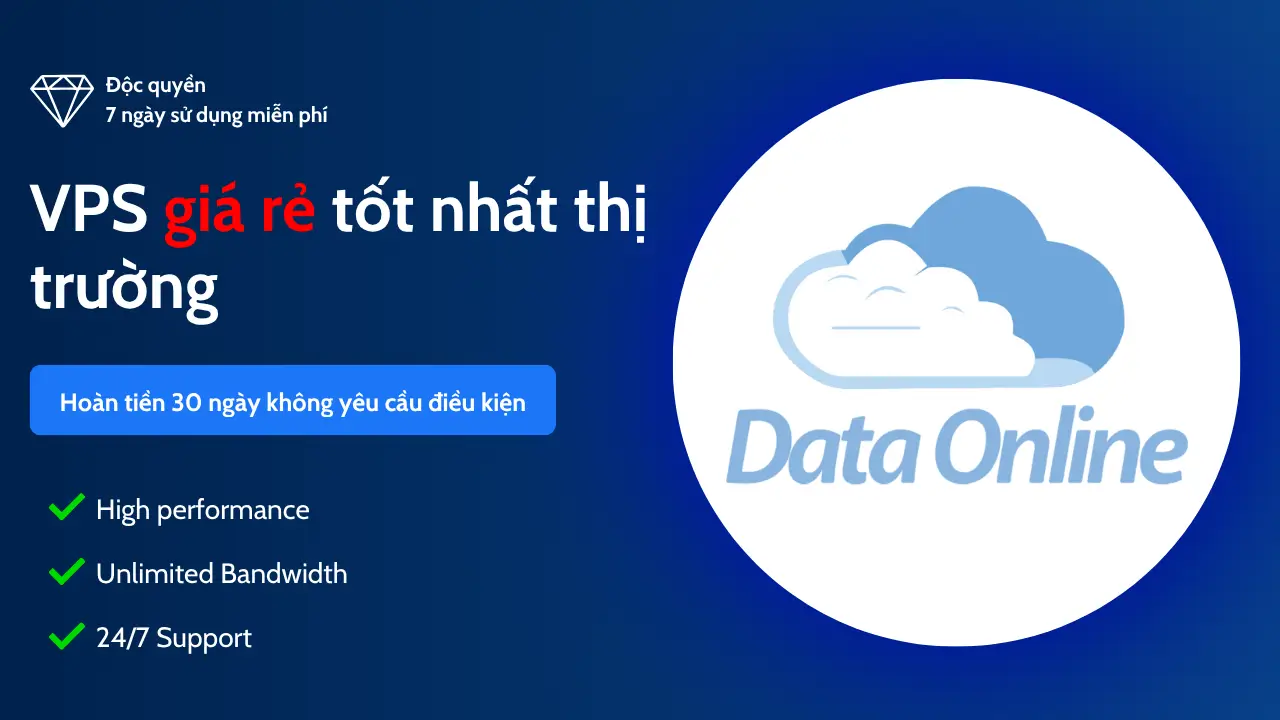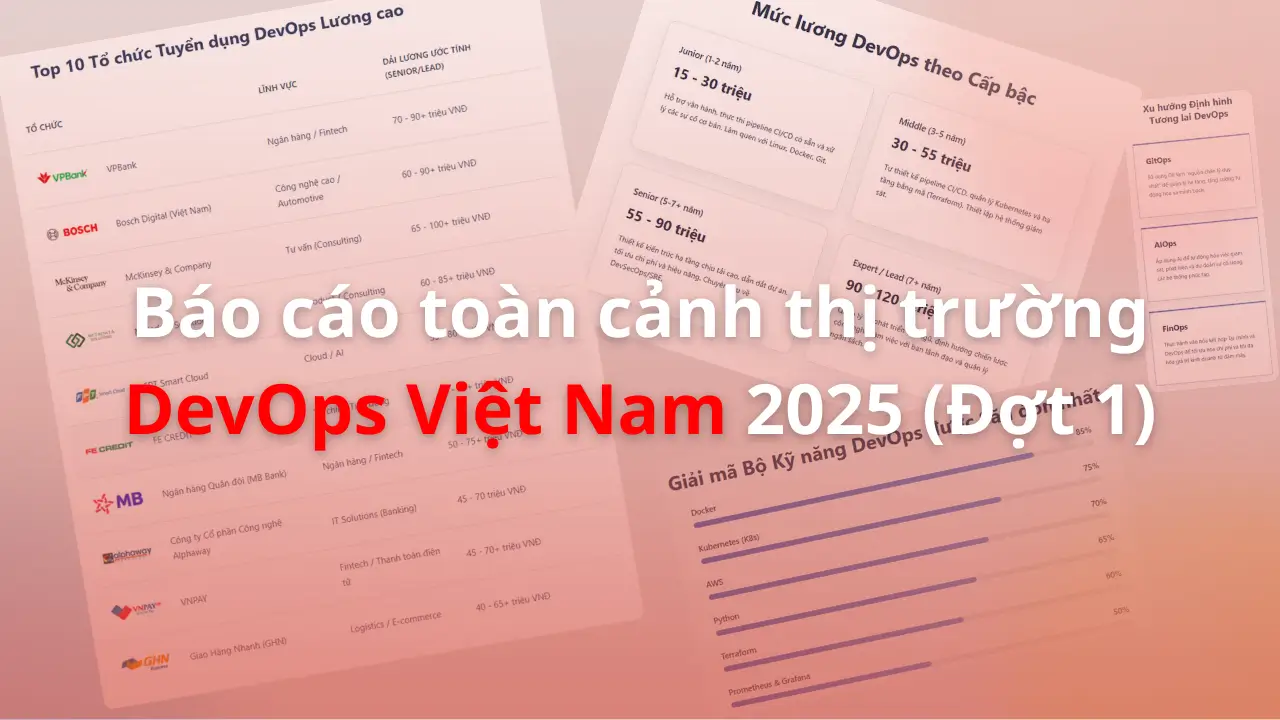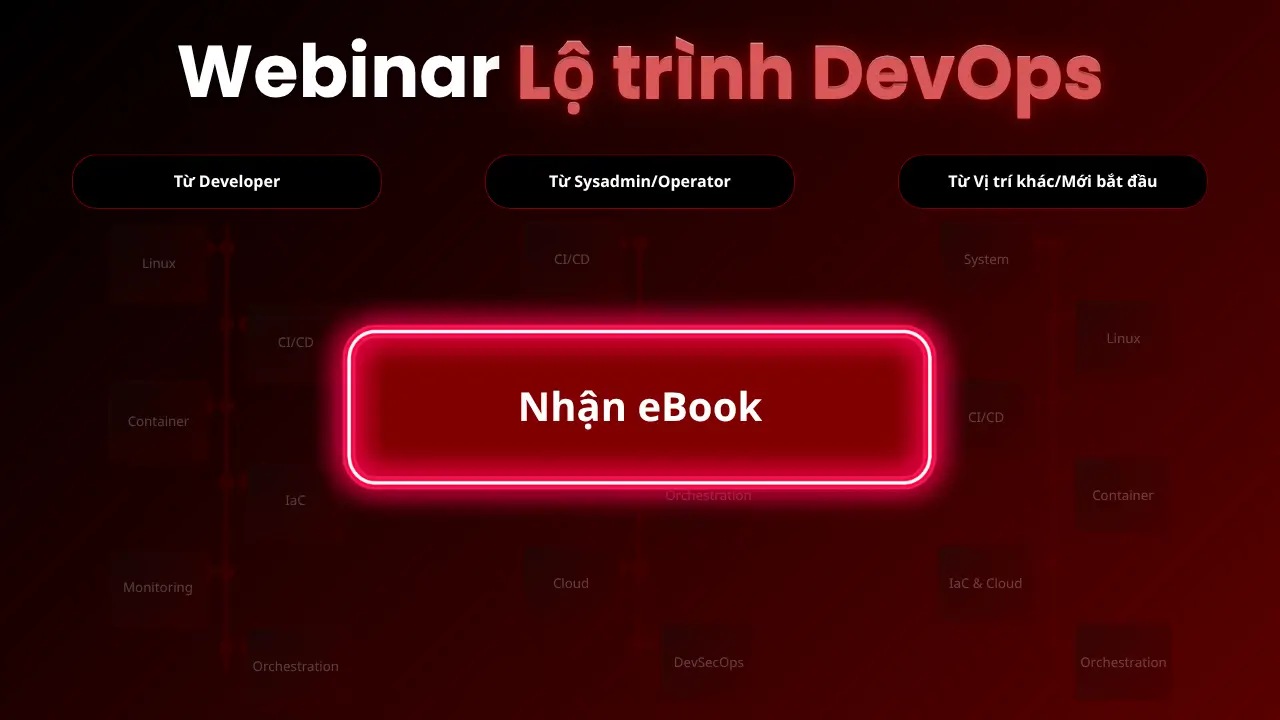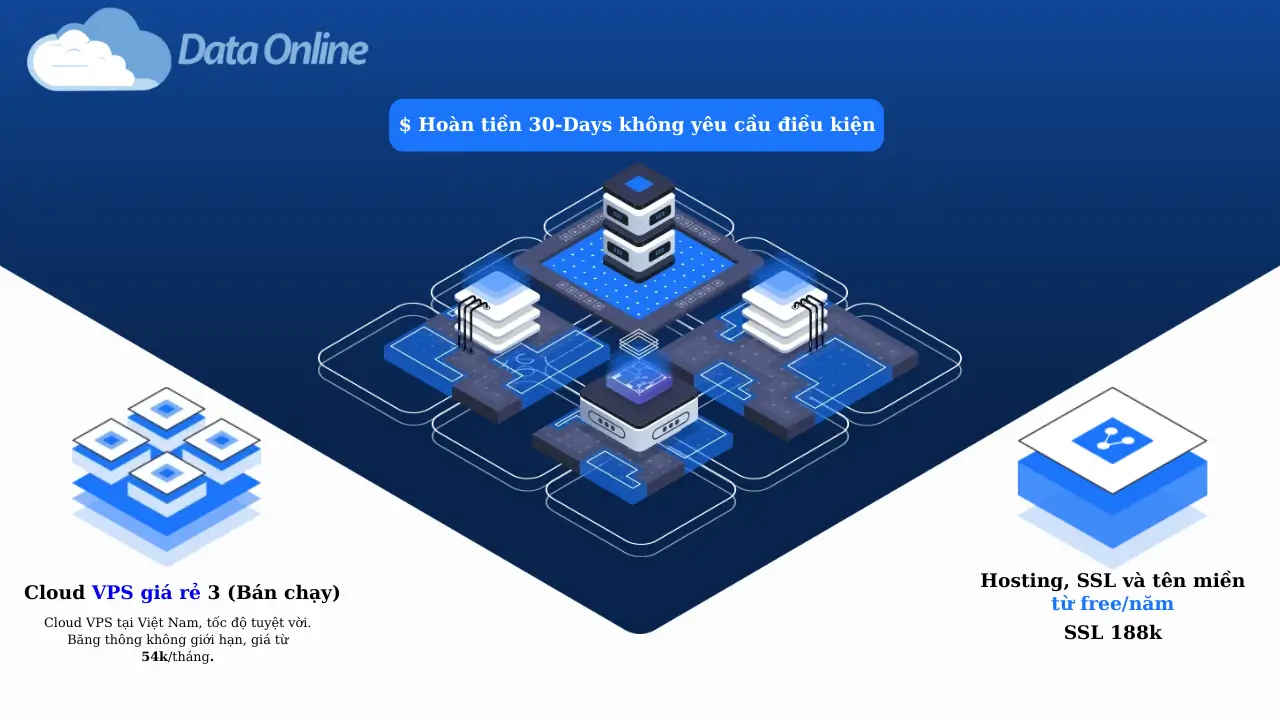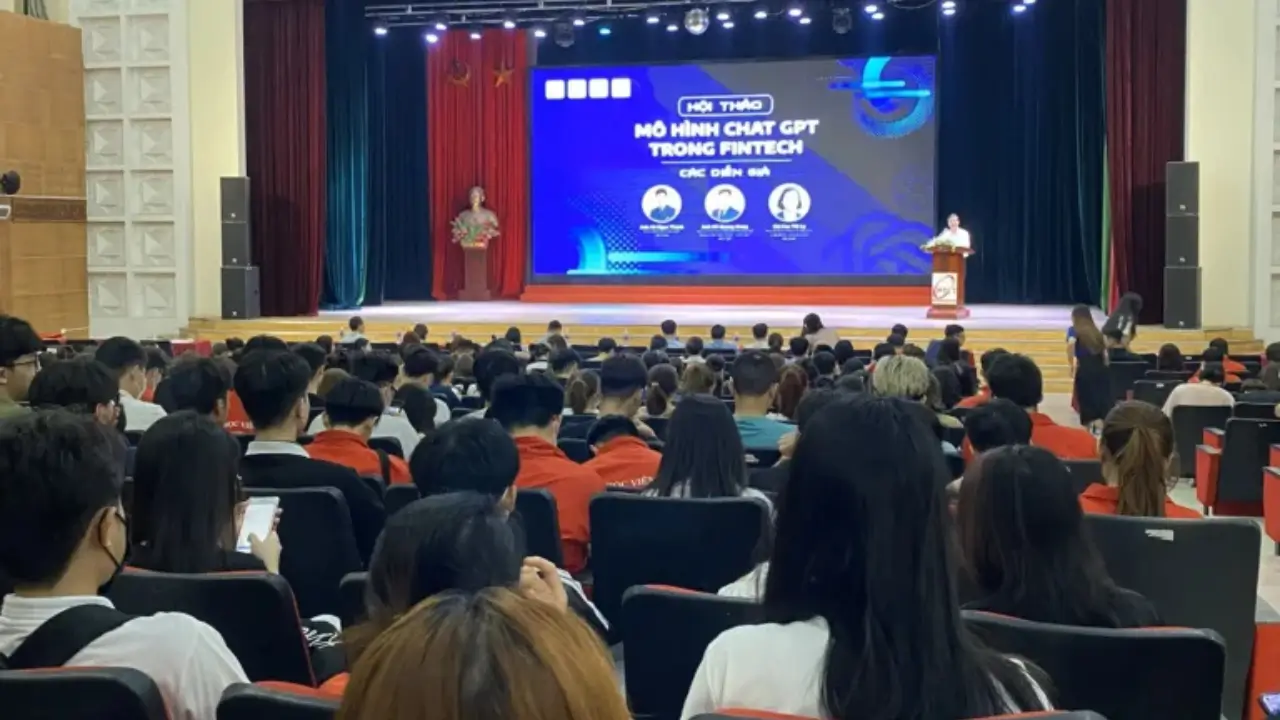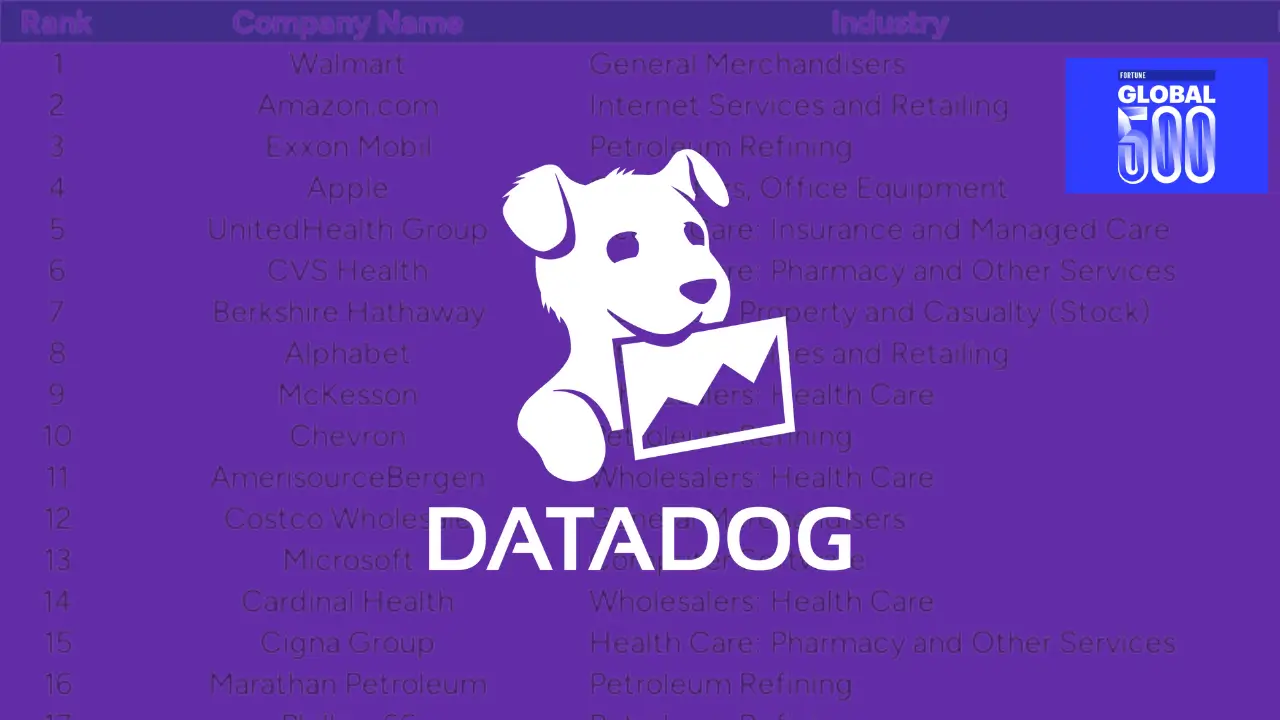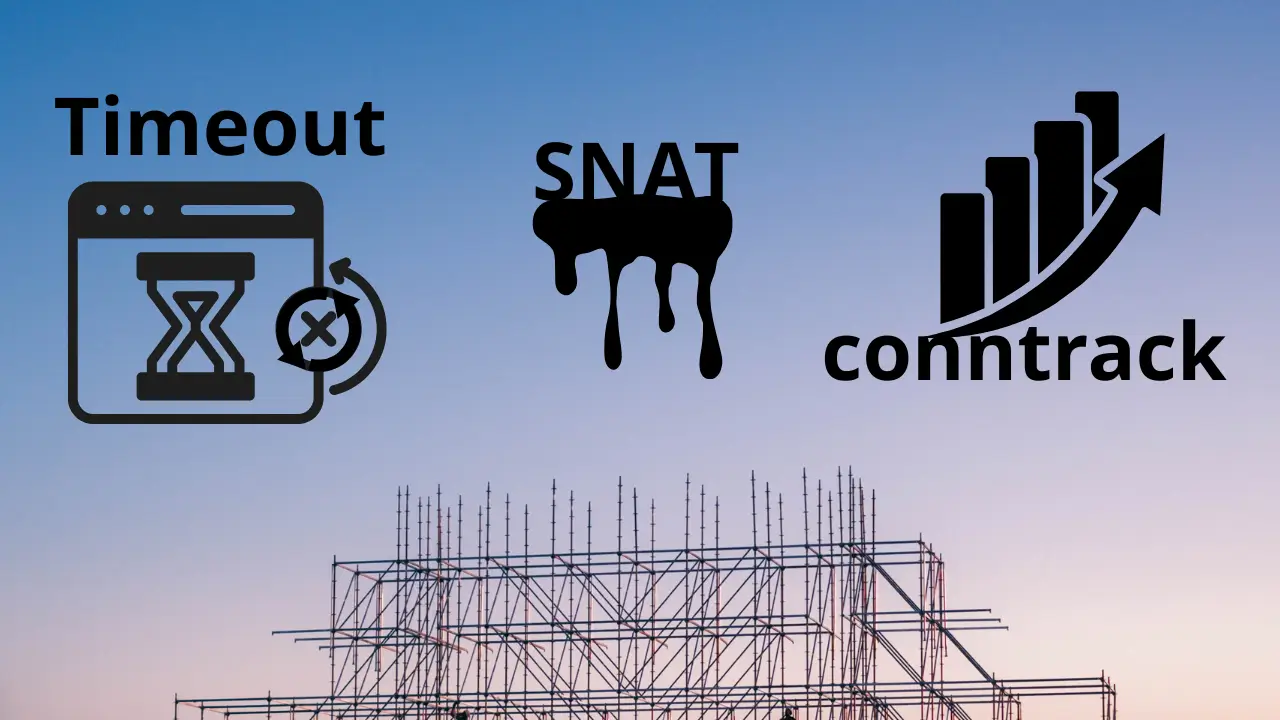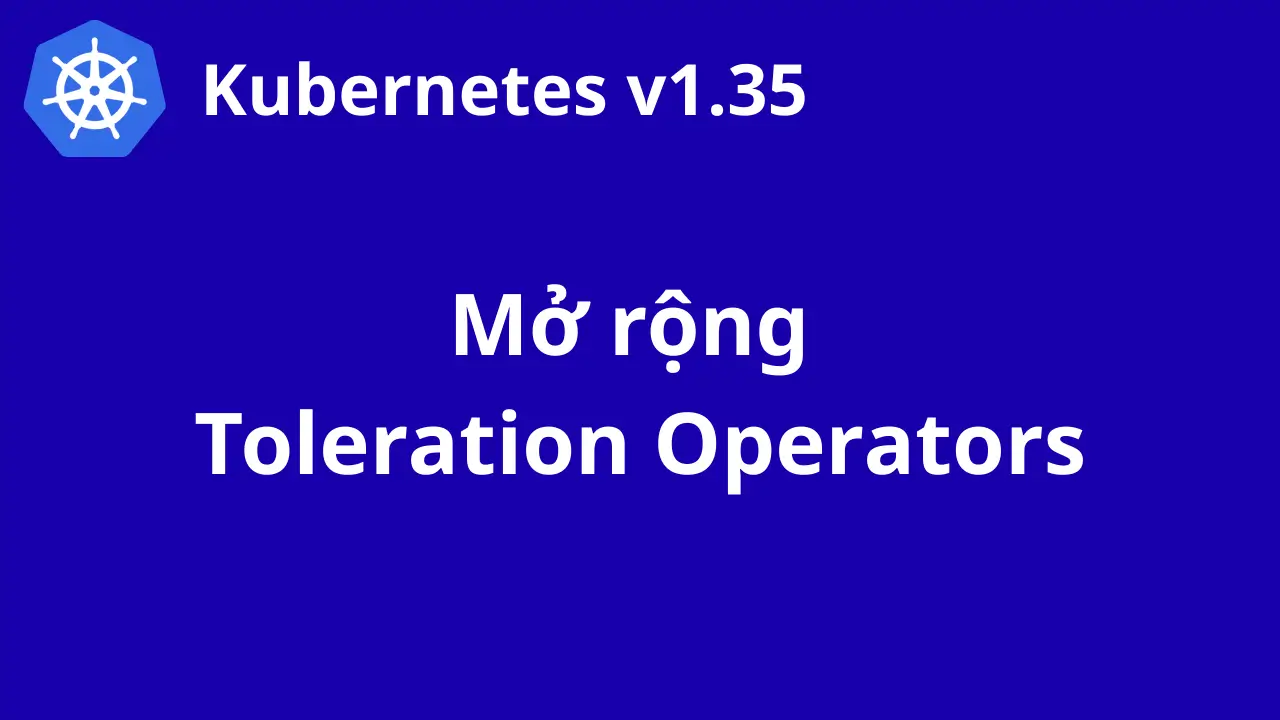Danh sách bài viết trong series Hành Trình Làm Chủ Terraform
- Bài 1. Học Terraform Cơ Bản: Terraform Là Gì? Cài Đặt Và Viết Mã Đầu Tiên
- Bài 2. Học Terraform Với AWS: 5 Bước Tạo Máy Chủ EC2 Đầu Tiên
- Bài 3. Tạo VPC Với Terraform: Xây Dựng Hạ Tầng Mạng Trên AWS
- Bài 4. Quản Lý Tài Nguyên Với Terraform: Sử Dụng Variables Và Outputs
- Bài 5. Tự Động Hóa Triển Khai Với Terraform: Tạo Load Balancer Và Auto Scaling Group
- Bài 6. Sử Dụng Terraform Modules: Tái Sử Dụng Mã Để Quản Lý Hạ Tầng Hiệu Quả
- Bài 7. Terraform Workspaces: Quản Lý Nhiều Môi Trường Hiệu Quả Trên AWS
- Bài 8. Terraform State: Quản Lý Trạng Thái Hạ Tầng Với S3 Và DynamoDB
- Bài 9. Terraform Provisioners: Tự Động Hóa Cấu Hình Web Server Trên EC2
- Bài 10. Terraform CI/CD: Tự Động Triển Khai Hạ Tầng Với GitHub Actions
Tại Sao Cần Tạo VPC Với Terraform?
Tạo VPC với Terraform là một kỹ năng quan trọng để xây dựng hạ tầng mạng an toàn và hiệu quả trên AWS. Sau khi đã làm quen với Terraform qua bài 1 (cài đặt và viết mã cơ bản) và bài 2 (tạo máy chủ EC2), bạn có thể thấy Terraform giúp tự động hóa việc quản lý hạ tầng một cách dễ dàng.
Tuy nhiên, trong các dự án thực tế, bạn thường cần một hạ tầng mạng riêng biệt để triển khai ứng dụng, chẳng hạn như một VPC (Virtual Private Cloud) với các subnet, internet gateway, và route table. Việc tạo VPC bằng tay trên AWS Console có thể mất hàng giờ và dễ sai sót. Trong bài này, mình sẽ hướng dẫn bạn 5 bước để tạo VPC với Terraform, giúp bạn xây dựng hạ tầng mạng trên AWS một cách nhanh chóng và chính xác.
Tạo VPC Với Terraform: Hướng Dẫn Từng Bước
Bước 1: Chuẩn Bị Môi Trường Và Cấu Hình AWS CLI
- Hành động:
- Đảm bảo bạn đã cài đặt Terraform 1.11.2 và AWS CLI. Nếu chưa, tham khảo bài 1 và bài 2 để cài đặt.
- Kiểm tra cấu hình AWS CLI:
aws configureĐảm bảo bạn đã nhập đúng Access Key, Secret Key, và vùng (VD:
us-east-1).
- Kết quả thực tế:
- Nếu AWS CLI đã được cấu hình từ trước (như trong bài 2), bạn có thể kiểm tra bằng lệnh:
aws sts get-caller-identityOutput sẽ là:
{ "UserId": "AIDAXYZ1234567890", "Account": "123456789012", "Arn": "arn:aws:iam::123456789012:user/your-user-name" }(Output xác nhận AWS CLI đã được cấu hình đúng và có thể kết nối với tài khoản AWS của bạn).
- Nếu AWS CLI đã được cấu hình từ trước (như trong bài 2), bạn có thể kiểm tra bằng lệnh:
Bước 2: Tạo Thư Mục Dự Án Và Viết Mã Terraform
-
Hành động:
- Tạo một thư mục mới cho dự án:
mkdir terraform-aws-vpc cd terraform-aws-vpc - Tạo file
main.tf:touch main.tf -
Mở file
main.tftrong VS Code và dán nội dung sau:terraform { required_providers { aws = { source = "hashicorp/aws" version = "5.0.0" } } } provider "aws" { region = "us-east-1" } # Tạo VPC resource "aws_vpc" "my_vpc" { cidr_block = "10.0.0.0/16" tags = { Name = "MyVPC" } } # Tạo subnet resource "aws_subnet" "my_subnet" { vpc_id = aws_vpc.my_vpc.id cidr_block = "10.0.1.0/24" tags = { Name = "MySubnet" } } # Tạo Internet Gateway resource "aws_internet_gateway" "my_igw" { vpc_id = aws_vpc.my_vpc.id tags = { Name = "MyInternetGateway" } } # Tạo Route Table resource "aws_route_table" "my_route_table" { vpc_id = aws_vpc.my_vpc.id route { cidr_block = "0.0.0.0/0" gateway_id = aws_internet_gateway.my_igw.id } tags = { Name = "MyRouteTable" } } # Gắn Route Table với Subnet resource "aws_route_table_association" "my_route_table_association" { subnet_id = aws_subnet.my_subnet.id route_table_id = aws_route_table.my_route_table.id }Giải thích:
aws_vpc: Tạo một VPC với CIDR block10.0.0.0/16.aws_subnet: Tạo một subnet trong VPC với CIDR block10.0.1.0/24.aws_internet_gateway: Tạo Internet Gateway và gắn vào VPC.aws_route_table: Tạo Route Table với route mặc định trỏ đến Internet Gateway.aws_route_table_association: Gắn Route Table với Subnet để subnet có thể truy cập internet.
- Tạo một thư mục mới cho dự án:
-
Kết quả thực tế:
- Sau khi chạy lệnh
mkdirvàcd, bạn đã ở trong thư mụcterraform-aws-vpc. Kiểm tra bằng lệnhpwd:/Users/user/terraform-aws-vpc - Sau khi tạo và chỉnh sửa file
main.tf, thư mục dự án sẽ có cấu trúc:terraform-aws-vpc/ main.tf(Kiểm tra bằng lệnh
ls, bạn sẽ thấy chỉ có filemain.tftrong thư mục). -
Kiểm tra nội dung file
main.tfbằng lệnh:cat main.tfOutput sẽ là:
terraform { required_providers { aws = { source = "hashicorp/aws" version = "5.0.0" } } } provider "aws" { region = "us-east-1" } resource "aws_vpc" "my_vpc" { cidr_block = "10.0.0.0/16" tags = { Name = "MyVPC" } } resource "aws_subnet" "my_subnet" { vpc_id = aws_vpc.my_vpc.id cidr_block = "10.0.1.0/24" tags = { Name = "MySubnet" } } resource "aws_internet_gateway" "my_igw" { vpc_id = aws_vpc.my_vpc.id tags = { Name = "MyInternetGateway" } } resource "aws_route_table" "my_route_table" { vpc_id = aws_vpc.my_vpc.id route { cidr_block = "0.0.0.0/0" gateway_id = aws_internet_gateway.my_igw.id } tags = { Name = "MyRouteTable" } } resource "aws_route_table_association" "my_route_table_association" { subnet_id = aws_subnet.my_subnet.id route_table_id = aws_route_table.my_route_table.id }(Nội dung file hiển thị đúng như mã đã viết).
- Sau khi chạy lệnh
Bước 3: Khởi Tạo Dự Án Terraform
- Hành động:
- Trong thư mục
terraform-aws-vpc, chạy lệnh:terraform init
- Trong thư mục
-
Kết quả thực tế:
-
Terminal sẽ hiển thị quá trình khởi tạo:
Initializing the backend... Initializing provider plugins... - Finding hashicorp/aws versions matching "5.0.0"... - Installing hashicorp/aws v5.0.0... - Installed hashicorp/aws v5.0.0 (signed by HashiCorp) Terraform has been successfully initialized! You may now begin working with Terraform. Try running "terraform plan" to see any changes that are required for your infrastructure. All Terraform commands should now work. If you ever set or change modules or backend configuration for Terraform, rerun this command to reinitialize your working directory. If you forget, other commands will detect it and remind you to do so if necessary.(Dòng “Terraform has been successfully initialized!” xác nhận quá trình khởi tạo thành công).
- Thư mục dự án sẽ có thêm các file và thư mục mới. Kiểm tra bằng lệnh
ls:.terraform .terraform.lock.hcl main.tf(Thư mục
.terraformchứa provider đã tải về, và file.terraform.lock.hcllưu thông tin phiên bản provider).
-
Bước 4: Xem Trước Và Áp Dụng Mã Terraform Để Tạo VPC
- Hành động:
- Chạy lệnh để xem trước các thay đổi:
terraform plan - Áp dụng mã để tạo VPC:
terraform applyKhi được hỏi “Do you want to perform these actions?”, gõ
yesvà nhấn Enter.
- Chạy lệnh để xem trước các thay đổi:
-
Kết quả thực tế:
-
Sau khi chạy
terraform plan, terminal sẽ hiển thị kế hoạch thực thi:Terraform used the selected providers to generate the following execution plan. Resource actions are indicated with the following symbols: + create Terraform will perform the following actions: # aws_internet_gateway.my_igw will be created + resource "aws_internet_gateway" "my_igw" { + id = (known after apply) + vpc_id = (known after apply) + tags = { + "Name" = "MyInternetGateway" } + tags_all = { + "Name" = "MyInternetGateway" } } # aws_route_table.my_route_table will be created + resource "aws_route_table" "my_route_table" { + id = (known after apply) + vpc_id = (known after apply) + route = [ + { + cidr_block = "0.0.0.0/0" + gateway_id = (known after apply) } ] + tags = { + "Name" = "MyRouteTable" } + tags_all = { + "Name" = "MyRouteTable" } } # aws_route_table_association.my_route_table_association will be created + resource "aws_route_table_association" "my_route_table_association" { + id = (known after apply) + subnet_id = (known after apply) + route_table_id = (known after apply) } # aws_subnet.my_subnet will be created + resource "aws_subnet" "my_subnet" { + id = (known after apply) + vpc_id = (known after apply) + cidr_block = "10.0.1.0/24" + tags = { + "Name" = "MySubnet" } + tags_all = { + "Name" = "MySubnet" } } # aws_vpc.my_vpc will be created + resource "aws_vpc" "my_vpc" { + id = (known after apply) + cidr_block = "10.0.0.0/16" + tags = { + "Name" = "MyVPC" } + tags_all = { + "Name" = "MyVPC" } } Plan: 5 to add, 0 to change, 0 to destroy.(Kế hoạch cho thấy Terraform sẽ tạo 5 tài nguyên: VPC, subnet, internet gateway, route table, và route table association).
-
Sau khi chạy
terraform applyvà gõyes, terminal sẽ hiển thị quá trình áp dụng:Terraform used the selected providers to generate the following execution plan. Resource actions are indicated with the following symbols: + create Terraform will perform the following actions: # aws_internet_gateway.my_igw will be created + resource "aws_internet_gateway" "my_igw" { + id = (known after apply) + vpc_id = (known after apply) + tags = { + "Name" = "MyInternetGateway" } + tags_all = { + "Name" = "MyInternetGateway" } } # aws_route_table.my_route_table will be created + resource "aws_route_table" "my_route_table" { + id = (known after apply) + vpc_id = (known after apply) + route = [ + { + cidr_block = "0.0.0.0/0" + gateway_id = (known after apply) } ] + tags = { + "Name" = "MyRouteTable" } + tags_all = { + "Name" = "MyRouteTable" } } # aws_route_table_association.my_route_table_association will be created + resource "aws_route_table_association" "my_route_table_association" { + id = (known after apply) + subnet_id = (known after apply) + route_table_id = (known after apply) } # aws_subnet.my_subnet will be created + resource "aws_subnet" "my_subnet" { + id = (known after apply) + vpc_id = (known after apply) + cidr_block = "10.0.1.0/24" + tags = { + "Name" = "MySubnet" } + tags_all = { + "Name" = "MySubnet" } } # aws_vpc.my_vpc will be created + resource "aws_vpc" "my_vpc" { + id = (known after apply) + cidr_block = "10.0.0.0/16" + tags = { + "Name" = "MyVPC" } + tags_all = { + "Name" = "MyVPC" } } Plan: 5 to add, 0 to change, 0 to destroy. Do you want to perform these actions? Terraform will perform the actions described above. Only 'yes' will be accepted to approve. Enter a value: yes aws_vpc.my_vpc: Creating... aws_vpc.my_vpc: Creation complete after 2s [id=vpc-0123456789abcdef0] aws_subnet.my_subnet: Creating... aws_internet_gateway.my_igw: Creating... aws_subnet.my_subnet: Creation complete after 1s [id=subnet-0123456789abcdef0] aws_internet_gateway.my_igw: Creation complete after 1s [id=igw-0123456789abcdef0] aws_route_table.my_route_table: Creating... aws_route_table.my_route_table: Creation complete after 1s [id=rtb-0123456789abcdef0] aws_route_table_association.my_route_table_association: Creating... aws_route_table_association.my_route_table_association: Creation complete after 1s [id=rtbassoc-0123456789abcdef0] Apply complete! Resources: 5 added, 0 changed, 0 destroyed.(Dòng “Apply complete! Resources: 5 added, 0 changed, 0 destroyed” xác nhận VPC và các tài nguyên liên quan đã được tạo).
- Kiểm tra trên AWS Console (VPC Dashboard), bạn sẽ thấy:
- Một VPC mới với tag
Name: MyVPC, CIDR10.0.0.0/16. - Một subnet với tag
Name: MySubnet, CIDR10.0.1.0/24. - Một Internet Gateway với tag
Name: MyInternetGateway. - Một Route Table với tag
Name: MyRouteTable, có route0.0.0.0/0trỏ đến Internet Gateway.
- Một VPC mới với tag
-
Bước 5: Xóa Tài Nguyên Để Dọn Dẹp
- Hành động:
- Chạy lệnh để xóa tài nguyên:
terraform destroyKhi được hỏi “Do you really want to destroy all resources?”, gõ
yesvà nhấn Enter.
- Chạy lệnh để xóa tài nguyên:
-
Kết quả thực tế:
-
Sau khi chạy
terraform destroyvà gõyes, terminal sẽ hiển thị quá trình xóa:Terraform used the selected providers to generate the following execution plan. Resource actions are indicated with the following symbols: - destroy Terraform will perform the following actions: # aws_internet_gateway.my_igw will be destroyed - resource "aws_internet_gateway" "my_igw" { - id = "igw-0123456789abcdef0" -> null - vpc_id = "vpc-0123456789abcdef0" -> null - tags = { - "Name" = "MyInternetGateway" } -> null - tags_all = { - "Name" = "MyInternetGateway" } -> null } # aws_route_table.my_route_table will be destroyed - resource "aws_route_table" "my_route_table" { - id = "rtb-0123456789abcdef0" -> null - vpc_id = "vpc-0123456789abcdef0" -> null - route = [ - { - cidr_block = "0.0.0.0/0" - gateway_id = "igw-0123456789abcdef0" } ] -> null - tags = { - "Name" = "MyRouteTable" } -> null - tags_all = { - "Name" = "MyRouteTable" } -> null } # aws_route_table_association.my_route_table_association will be destroyed - resource "aws_route_table_association" "my_route_table_association" { - id = "rtbassoc-0123456789abcdef0" -> null - subnet_id = "subnet-0123456789abcdef0" -> null - route_table_id = "rtb-0123456789abcdef0" -> null } # aws_subnet.my_subnet will be destroyed - resource "aws_subnet" "my_subnet" { - id = "subnet-0123456789abcdef0" -> null - vpc_id = "vpc-0123456789abcdef0" -> null - cidr_block = "10.0.1.0/24" -> null - tags = { - "Name" = "MySubnet" } -> null - tags_all = { - "Name" = "MySubnet" } -> null } # aws_vpc.my_vpc will be destroyed - resource "aws_vpc" "my_vpc" { - id = "vpc-0123456789abcdef0" -> null - cidr_block = "10.0.0.0/16" -> null - tags = { - "Name" = "MyVPC" } -> null - tags_all = { - "Name" = "MyVPC" } -> null } Plan: 0 to add, 0 to change, 5 to destroy. Do you really want to destroy all resources? Terraform will destroy all your managed infrastructure, as shown above. There is no undo. Only 'yes' will be accepted to confirm. Enter a value: yes aws_route_table_association.my_route_table_association: Destroying... [id=rtbassoc-0123456789abcdef0] aws_route_table_association.my_route_table_association: Destruction complete after 1s aws_route_table.my_route_table: Destroying... [id=rtb-0123456789abcdef0] aws_route_table.my_route_table: Destruction complete after 1s aws_internet_gateway.my_igw: Destroying... [id=igw-0123456789abcdef0] aws_internet_gateway.my_igw: Destruction complete after 1s aws_subnet.my_subnet: Destroying... [id=subnet-0123456789abcdef0] aws_subnet.my_subnet: Destruction complete after 1s aws_vpc.my_vpc: Destroying... [id=vpc-0123456789abcdef0] aws_vpc.my_vpc: Destruction complete after 2s Destroy complete! Resources: 5 destroyed.(Dòng “Destroy complete! Resources: 5 destroyed” xác nhận VPC và các tài nguyên liên quan đã bị xóa).
- Kiểm tra lại trên AWS Console (VPC Dashboard), bạn sẽ thấy VPC
MyVPCvà các tài nguyên liên quan (subnet, internet gateway, route table) không còn tồn tại.
-
Kết Quả Đạt Được
- Bạn đã sử dụng Terraform để tạo một hạ tầng mạng hoàn chỉnh trên AWS, bao gồm VPC, subnet, internet gateway, route table, và route table association.
- Bạn đã kiểm tra và xác nhận hạ tầng mạng hoạt động đúng trên AWS Console.
- Bạn đã xóa tài nguyên để dọn dẹp, tránh phát sinh chi phí không cần thiết.
- Bạn đã làm quen với cách tạo VPC với Terraform, một kỹ năng quan trọng để triển khai các ứng dụng thực tế.
Lưu Ý Quan Trọng
- CIDR block: Đảm bảo CIDR block của VPC (
10.0.0.0/16) và subnet (10.0.1.0/24) không trùng với các VPC hoặc mạng khác trong tài khoản AWS của bạn. Tham khảo tài liệu AWS để biết thêm chi tiết (AWS VPC Documentation). - Chi phí AWS: VPC và các tài nguyên liên quan trong bài này không phát sinh chi phí, nhưng nếu bạn triển khai thêm tài nguyên (VD: EC2, NAT Gateway), hãy kiểm tra chi phí trên AWS Pricing.
- Bảo mật: Đảm bảo tài khoản AWS của bạn có quyền phù hợp (VD: quyền
ec2:*,vpc:*) để tạo và xóa tài nguyên. Nếu gặp lỗi quyền, kiểm tra IAM policy. - Ôn lại kiến thức: Xem lại bài 1 Học Terraform Cơ Bản: 5 Bước Cài Đặt và Viết Mã Đầu Tiên và bài 2 Học Terraform Với AWS: 5 Bước Tạo Máy Chủ EC2 Đầu Tiên để nắm vững các khái niệm cơ bản.


